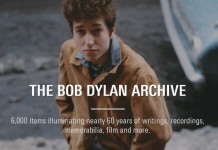 When it comes to copyright and piracy, it often seems that some of the most vehement objectors don’t practice what they preach. The Boston Phoenix’s Carly Carioli has posted an editorial to the Phoenix’s blog calling out the New York Times, which published a couple of scorching columns on piracy over the weekend, for at the same time ripping off an article to which the Phoenix holds the copyright.
When it comes to copyright and piracy, it often seems that some of the most vehement objectors don’t practice what they preach. The Boston Phoenix’s Carly Carioli has posted an editorial to the Phoenix’s blog calling out the New York Times, which published a couple of scorching columns on piracy over the weekend, for at the same time ripping off an article to which the Phoenix holds the copyright.
The article in question is a 36-year-old investigative report into football injuries which was scanned and uploaded in PDF form to the New York Times’s website and linked from an article and blog post talking about it. (At the time of this writing, the link seems to be gone from article and blog post, but when I manually typed in the URL displayed in the Phoenix piece, I found the PDF is still on the server.)
Presumably, the Times had the permission of Clark Booth, the story’s original author, to repost it. However, his permission only covered the text of the article, not the photos, ads, and layout featured in the original paper story.
Carioli uses this as a springboard to discuss the thorny matter of copyright in the digital age.
[Former New York Times executive editor Bill] Keller would like you to believe, even though he thinks of the world as being populated by digital pickpockets, that a sane anti-piracy legislation will be enforced only against the largest and most egregious copyright offenders. It’s as if he lives in some alternate universe where major labels haven’t already sued individual downloaders and their parents for hundreds of thousands of dollars in damages. The onus isn’t on the public to prove that copyright legislation won’t be used against us: it’s on legacy media protectorates to come up with solutions that don’t punish their customers.
He brings up the matter of the Pulse RSS reader, which the New York Times got yanked from Apple’s app store because it had the temerity to incorporate a publicly-available RSS feed of the Times’s articles into its app on launch. He also mentions a copyright case that the New York Times lost to freelance writers that has made it more expensive and difficult for newspapers to post their own archives online.
And he notes that the state of indexing and archival surrounding old newspaper articles such as the one the Times reprinted is something of a mess. Indeed, if it hadn’t been for the Times reprinting it, it is likely few people would ever have had the chance to read it again. And if the Phoenix did have a lawyer request the article be taken down, it would probably cost more money than either they or the Times would make out of it, and due to those thorny archive rights issues, it is doubtful that the Phoenix could post it anywhere itself.
So here’s my best suggestion: the Times should help us track down the photographer, pay him or her the going Times rate for the photos they republished, and then, with our permission, upload the Booth article to Scribd.comor a similar service, so that anyone can embed the piece wherever they want. (In the case that Clark Booth didn’t already give the Times permission to reprint his words, they should pay him, too.) Then the Times should promise never to do it again. On pain of — let’s say — taking down their paywall for a month.
I suspect the article will just end up being taken down instead.
Regardless, it’s amusing and perhaps instructive that one of the most distinguished newspapers in the world is capable of making this kind of copyright mistake, at the same time it blasts “pirates” for misappropriating other people’s material. If even the New York Times can’t keep it straight, what chance do the rest of us have?
(Found via BoingBoing.)

































Has no one heard of computers? Meta tags? Searches? Most of these issues would be non-issues, if documents and other media (especially that which is paid for) were properly tagged and indexed… then simple searches would turn up owners and requirements for use. Even “us little guys” could do that, and all media creators should be able to tag their creations for just such use.
We’re still in that “painful transition” stage for a lot of this media use and sharing. Eventually, if for no other reason than to make sure people get paid and lawyers don’t have to be involved in every transaction, most of this will get straightened out.
It’s not really that hard. Most of us know the basics, as they’re the same thing we learned in kindergarten:
Don’t use anything without asking first.
Now, there are some quite limited fair use exemptions, but in general, it’s clear.
If you’re in the media, you know about the difference between the words and the presentation, and that you need to get permission for both. The NYT error is ridiculous, and it shouldn’t have happened.
And yes, Virginia, everything on the Web is owned by someone. The fact that it’s on a web page doesn’t matter at all. You still can’t take it.